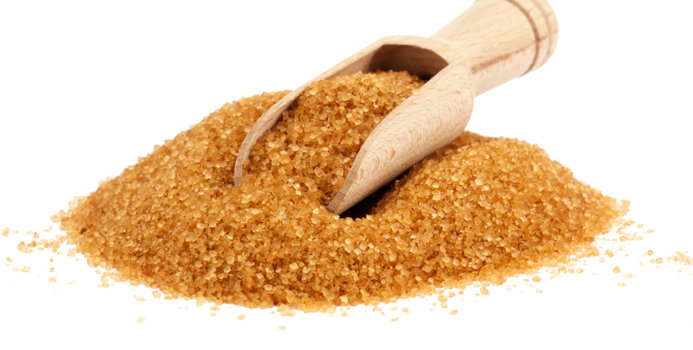While you should generally limit your intake of both brown and white sugar, you may have heard that brown sugar is better for you. While brown sugar may contain slightly more essential nutrients than white sugar, it isn't necessarily healthy.
What is Brown Sugar?
Brown sugar is simply white sugar mixed with molasses. Therefore, brown sugar can hold its shape like wet sand, while white sugar cannot. Raw sugar is also generally brown in color, and forms when the juice of sugar cane evaporates. However, many people refer to brown sugar as granulated white sugar with molasses added to it.
Is Brown Sugar Really Better?
Molasses and brown sugar do contain more essential nutrients that white sugar, so choosing brown sugar over white is technically healthier. For example, a tablespoon of molasses is a good source of dietary potassium -- and provides small amounts of calcium, magnesium and B vitamins. However, the amount of these essential nutrients you'd be getting from brown sugar is very small and won't do much to meet your daily nutrient needs. Furthermore, just like white sugar, molasses and brown sugar are added sugars that should be limited in your diet as much as possible to avoid unwanted weight gain and increased chronic disease risks.
Calorie Content
Brown sugar and white sugar both contain about the same number of calories per serving. A teaspoon of packed brown sugar provides 17 calories and 1 teaspoon of white sugar contains 16 calories, notes the U.S. Department of Agriculture National Nutrient Database. So, if you're looking for ways to cut calories, choosing brown sugar over white sugar won't be beneficial.
How Much Sugar is Too Much?
To maximize your health and lower risks for unwanted weight gain and chronic diseases, limit added sugars -- including white sugar, brown sugar, and molasses -- as much as possible, suggests the American Heart Association (AHA). The AHA recommends most women limit added sugars to 100 calories or less per day, and men eat no more than 150 calories from added sugar daily. One gram of sugar provides 4 calories.

An experienced health, nutrition and fitness writer, Erin Coleman is a registered and licensed dietitian and holds a dietetics degree from the University of Wisconsin-Madison. She also has worked as a clinical dietitian and health educator in outpatient settings. Erin's work is published on popular health websites, such as TheNest.com and JillianMichaels.com.



